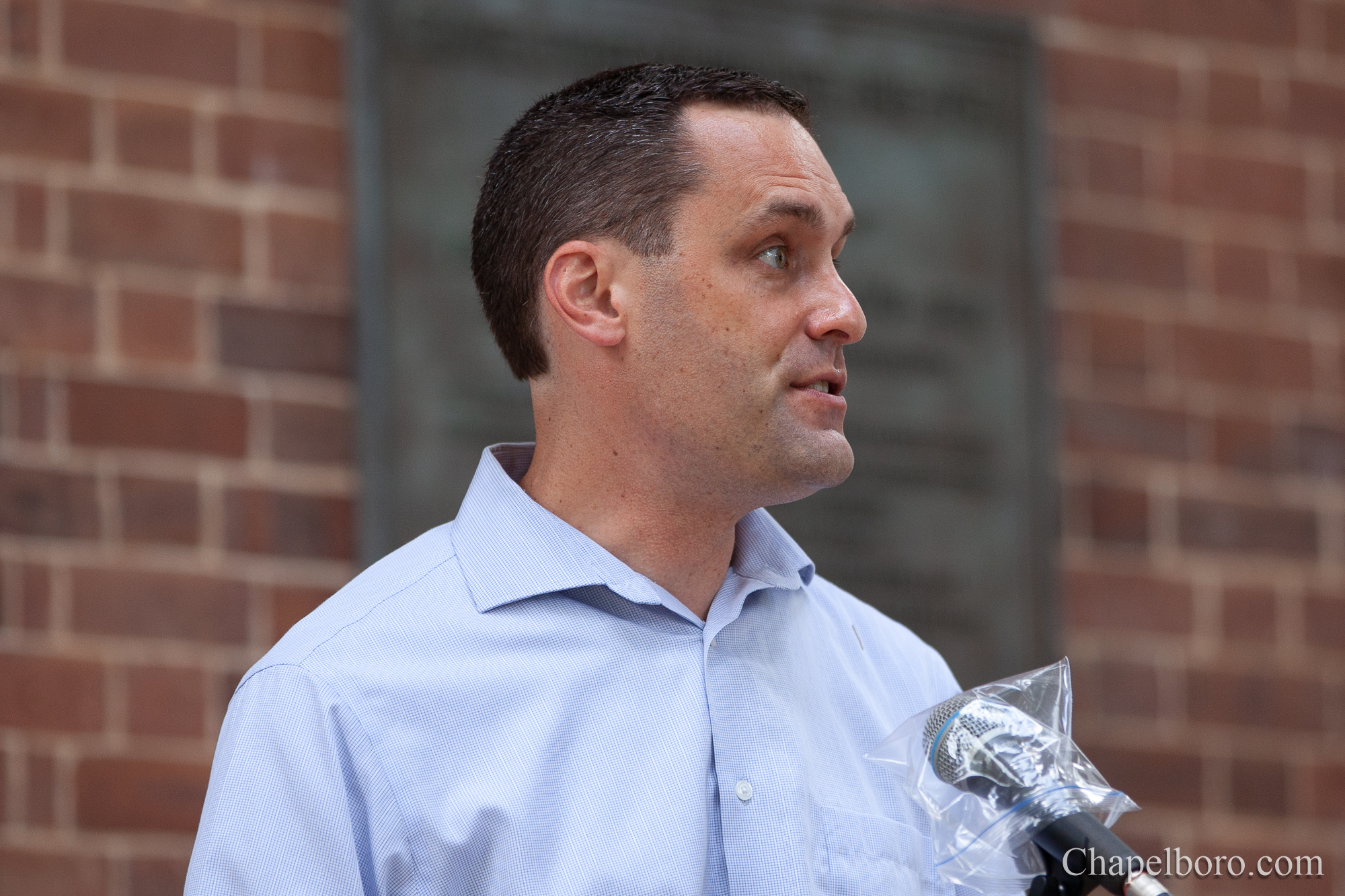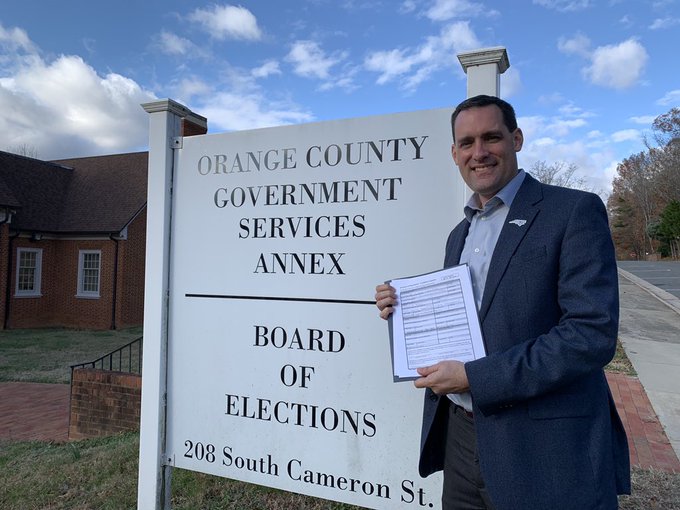The North Carolina General Assembly stopped in its tracks last month, but Rep. Graig Meyer (D, NC-50) is claiming that state policymakers have much more ground to cover.
Meyer and his colleagues agreed to hold two special legislative sessions later this year after a six-month stint of lawmaking that concluded on June 30.
Although many topics were discussed during that session, Meyer offered his thoughts on important subjects that were not broached by either of the primary political parties.
“What’s amazing to me are the things that Republicans and Democrats agree need to happen; every rural representative in the state wants to see an expansion of rural broadband access for economic and education reasons, and yet, they did nothing, and I just don’t understand why there are big projects like that, that everyone knows we need to take on, and there’s complete inaction,” he stated.
Meyer also noted that his party benefited from the guidance provided by Gov. Roy Cooper (D), whose political leanings contrast with the Republican majority in North Carolina.
“It actually made a pretty big difference to have Gov. Cooper in office for us in the Democratic party, even though we were in the minority; it’s certainly easier to make our arguments when we have the bully pulpit from the governor and we’re able to follow the governor’s lead rather than having to try and create things from a legislative body where we have a variety of opinions within our own caucus,” he relayed.
In addition to ratifying a state budget of $23 billion, lawmakers debated the merits of removing funding caps for projects that include local rail transport systems.
According to Meyer, additional state funding for the Durham-Orange Light Rail Transit Project will not be forthcoming due to the politics that surround those caps.
“The House Transportation chairs want the cap lifted […] in part for the Durham-Orange Project, but they also want it lifted to allow expansion of light rail in Charlotte; I don’t know where the speaker stands specifically on it, but the Senate has not been willing to lift the cap, so right now […] not everyone’s on board with lifting the cap, therefore, the cap stays on,” he explained.
An average pay raise of 9.6 percent for teachers in North Carolina was factored into the budget, which passed after lawmakers voted to abolish impact fees in Orange County.
Meyer explained that even with the conflicts that continue to simmer in the state legislature, he was proud to have helped raise the age of juvenile jurisdiction from 16 to 18.
“The one legislative issue that got done that I was happy about was that we did raise the age of juvenile jurisdiction, so North Carolina will no longer be the only state in the nation that has 16 and 17-year-olds in our adult court system; I’m not entirely happy with the final deal that we got on that, but we took a big step in the right direction,” he admitted.
The North Carolina General Assembly will reconvene on August 3 and September 6 to conduct business that may include responding to lawsuits and overriding gubernatorial vetoes.
Photo from graigmeyer.com.
Related Stories
‹

Orange County Representative: Momentum Possible for Bipartisanship NC Budget in 2021North Carolina’s General Assembly returns for its first sessions of 2021 on January 13. In addition to addressing the ongoing COVID-19 pandemic and relief for residents, the legislature has an opportunity to work on a long-standing stagnant item: a new budget. The state has operated off of a budget approved in 2018 after two years […]

Rep. Meyer Preparing for Re-Election Campaign, Urges Other Democratic Candidates to RunOn the day filing opened for state house and senate representatives, House District 50 representative Graig Meyer filed for re-election to his fifth term. Meyer, who represents most of Orange County except for Chapel Hill and Carrboro, has been in North Carolina’s House of Representatives since 2013. He says he’s motivated by his hope to […]
![]()
What's Left After the General Assembly Went HomeThe North Carolina General Assembly has wrapped up one of the longest legislative sessions in recent memory. Municipalities’ ability to make decisions specifically impacting their communities, public school funding being diverted to charter schools, light rail spending, status of sanctuary cities, and the discreteness of the search for the next UNC system president were all […]
![]()
House Votes to Remove Light Rail Spending CapNorth Carolina House voted on Monday night to remove the spending cap that was initially placed on light rail spending in the state budget signed earlier this month. The state Senate is expected to vote on the legislation Tuesday. If passed, the bill would then go to Governor McCrory for his signature. *** A […]
![]()
House GOP Conservatives Help Propel Budget BillA sweeping vote by conservative Republicans controlling the House and President Barack Obama's Democratic allies has sent a bipartisan budget agreement to the Senate, where it will encounter stronger but probably futile resistance from the GOP.
![]()
House Republicans Get Behind Budget AgreementHouse Republicans are rallying behind a modest budget pact that promises to bring a temporary halt to budget brinkmanship in Washington and ease automatic budget cuts that would otherwise slam the Pentagon and domestic agencies for a second straight year.
![]()
GOP, Obama Line Up Behind Modest Budget DealTop Republicans and President Barack Obama are lining up behind a modest but hard-won bipartisan budget agreement that seeks to replace a portion of tough spending cuts facing the Pentagon and domestic agencies.
![]()
AP-GfK Poll: Low Approval Of Congress, ObamaNearly two-thirds say they would like to see their House member replaced.
![]()
NC Abortion Education Bill Up For Final House VoteA bill requiring North Carolina educators to teach that abortions cause later premature births is scheduled for a final vote in the state House.
![]()
Legislators Elect Next Class To Serve On UNC BoardRALEIGH – The General Assembly has elected its next class of 16 people to serve on the University of North Carolina Board of Governors. The House and Senate held separate elections Wednesday to pick eight people apiece to serve on the 32-member board, which sets policy for UNC’s 17 campuses. They’ll serve four-year terms. New […]
›



